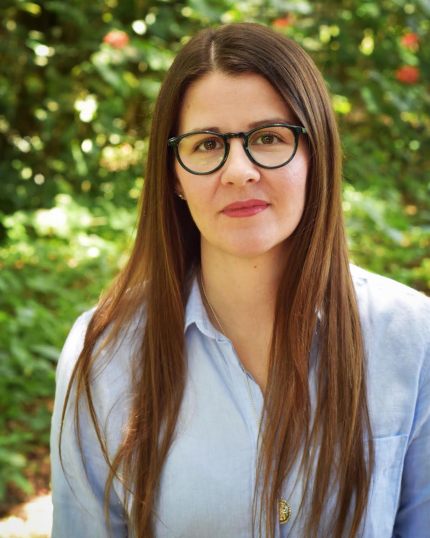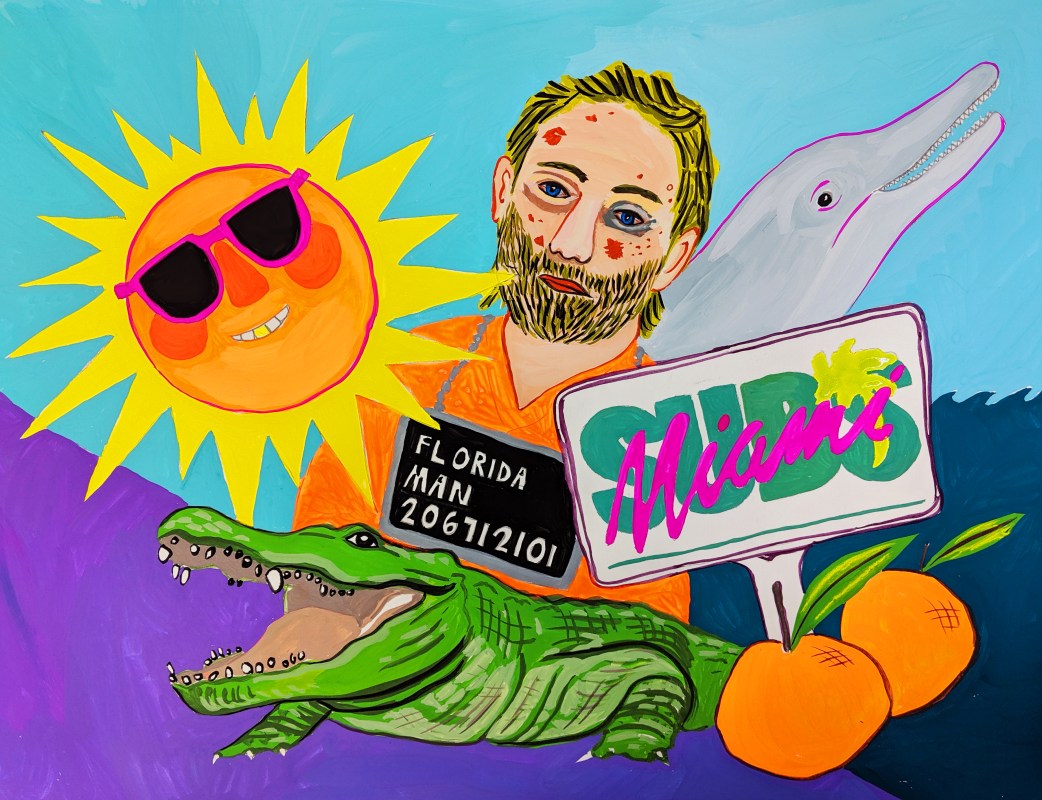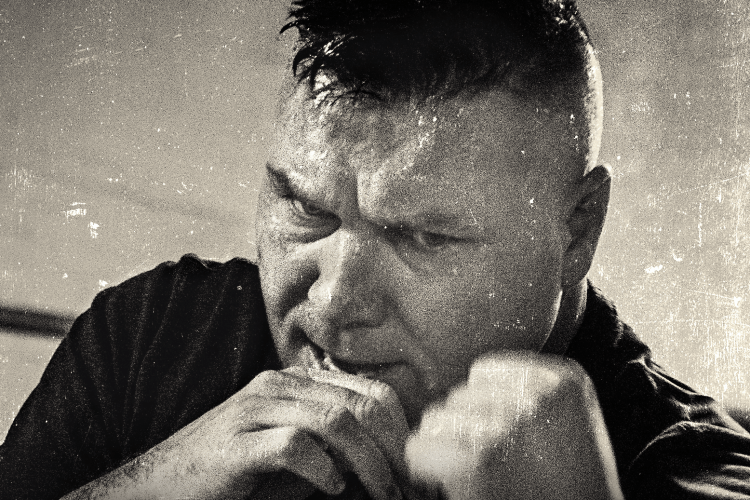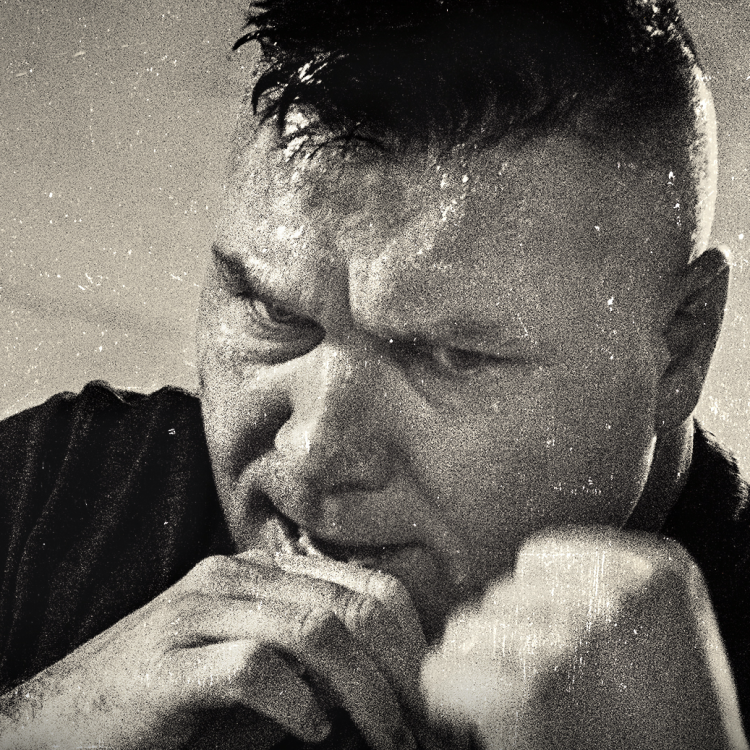Thick with humidity and denizens sporting blue hair, a purple tooth or both, a lot of kudzu hacking is required to reveal the vibrant innards that makes Florida beautiful. It’s funny because some of that natural beauty is slicked right onto the state’s surface; fat palm tree stalks growing alongside a floor teeming with azalea and canna lily blooms, tanned bodies trained to be comfortable in very little clothing due to necessity, Ariana Grande.
Florida, despite functioning as a punchline across the nation for decades, won’t leave the conversation. The growing popularity of critically celebrated, highbrow artistic outputs set in the Sunshine State — Moonlight and Spring Breakers, television shows from Dexter to Claws, Karen Russell novels and Lauren Groff’s short stories — suggests that maybe something more magic than alligators swims around the brackish waters of this “lowbrow” land.
Now, with her debut novel, Mostly Dead Things, Kristen Arnett has added the latest addition to the canon demanding Florida deserves another look.
Arnett is an engaging, eloquent anomaly in many senses. Her grandparents were born in Maitland, a town about 15 minutes north of Orlando proper and home to the Sonny’s Real Pit Bar-B-Q flagship location, where she also currently resides. It’s a stone’s throw from where her parents live, too (not that they talk anymore). Mostly Dead Things follows a young, queer taxidermist woman living in a small Central Florida town in the wake of her father’s suicide. Arnett’s flawed, lovable characters burst from the cattails and sunscreen musk of the page with sometimes unnerving clarity. But Florida also appears as a separate character, real in a way only a third-generation Floridian working as a librarian (while simultaneously existing as a queer person in a small Southern town) can conjure.
“You can always tell when somebody’s new to living here ’cause they’ll walk their dog way too close to the water, especially certain times of year,” Arnett says about the gators, particularly during mating season (roughly from April till late June). Ask anyone who grew up in Florida and they can name at minimum one childhood friend who lost a family pet to the modern-day dinosaurs, but Arnett writes about her home without thoughtful precision, praising its omnipresent gas-station cuisine while questioning exactly what this new coat of asphalt paved over.
“I think I was having to describe this to somebody the other day that hadn’t been here,” she says. “And they were like, ‘Are there a lot of things that can kill you [in Florida]?’ And I’m like, ‘Yeah, you just kind of know how to deal with them and be around them,’ ’cause you know, they’re around you but you just know how to interact with them and it’s not something you have on your brain all the time?”
Floridians are wired for survival in a way far less publicized than an aptitude for bizarre crimes, like the time earlier this year when a 29-year-old Boynton Beach woman broke into a police station to gobble up one of the cop’s leftovers (the microwaving said leftovers prior to consumption detail really puts it over the top). Florida man headlines essentially write themselves.
Perhaps related: Florida has a history of being tacky. From horned-up 1990s-era MTV Spring Break coverage to Lou Pearlman and his glittering collection of synthetic-pop boy bands, caricatures come as naturally as the sidewalks artists who draw them in and around Orlando’s various theme parks.
Arnett’s work explores Florida beyond the binary of bottle-blonde vagabonds and the beautiful holiness of sun hitting Spanish moss on a canopied road. In the book, we follow narrator Jessa-Lynn as she works to steady the Morton family’s declining taxidermy business while navigating a love triangle with her brother’s wife and supporting her grieving mother, who copes with loss by constructing grotesque window displays of the shop’s offerings. Her semi-functioning, abusive relationship with alcohol is also a major theme.
With a constant state of hangover ravaging already-raw nerves, Jessa-Lynn isn’t able to step up when her family desperately needs her. Outside moments of consumption or drunkenness, her standard beer can further highlight feelings of futility. She carves up animal carcasses with the surgical precision her late father taught her — a deviation from traditional gender roles because Milo, Jessa-Lynn’s brother, was deemed too soft to hang at a young age — but she can’t carve herself free from a gorgeous manipulator hellbent on seducing and hurting both Morton kids.

“Orlando specifically, I think is this complete gradient of what it looks like to kind of be in a [Floridian] space,” Arnett says. “So it’s like, ‘yeah, there’s theme parks here,’ but then there’s also so much natural space. People go outside and spend time [outdoors]. … There’s also, like, you’re driving down the road and there’s a strip mall, but then two streets over there’s a cow pasture. I think it’s just very interesting how things are butted up against each other here. It’s like a sliding scale of what’s beauty or what’s natural, versus what’s fake and what’s tacky and it all bleeds together.”
Arnett writes in a deeply intentional way that reads effortless. Every line has feeling. She is a local, after all, a fixture at the neighborhood 7/11 and unapologetic about cooling off in a kiddie pool in her backyard with a frosty beer and beloved fleet of critters underfoot. Arnett lacks pretension and writes her characters with empathy and understanding, because, in a way, she is one of them. Taxidermied deer heads and their glassy eyes line the walls of her childhood memory, a detail — especially when paired with the state’s significant retiree population — that serves as a constant reminder: death happens, inevitably and all the time. Just with the former, non-iodized salt helps crystallize a living memory.
“Taxidermy is this purposeful remembering. But so is so many of our very specific, like, I can say treasured memories but also painful memories,” she says. “Like we’ve constructed them and kept them for ourselves. There’s that quote, I can never remember who said it but it’s like, ‘A memory is just the last time you told it or the last time you thought of it.’”
Arnett explores the concept of what she calls “collective amnesia” in the novel, the idea that — with enough smooth concrete — entire groups of people can reconstruct a new narrative. Perhaps one that hurts a little less.
“The more I think about it, the more I think [the effort] is subconscious … a purposeful suppression of things that are painful,” she continues. “Because the things that you’re talking about” — early colonizers wiping out indigenous populations, young people throwing lavish weddings on the same ground holding enslaved black blood — “are painful, are bad. But when those things occur where we’re like, ‘OK, well we’re just gonna get rid of it, we won’t remember,’ what actually happens? The same thing can happen over again because you don’t learn anything from it, it’s just a forgetting.”
Like the time that, nearly three years ago to the day, a hateful man opened fire and killed 49 people dancing at a gay club not far from Arnett’s house.
“It’s this constant re-visioning of it over and over again until we honed it into this story we want to remember it as, even if that’s an ugly thing.” Like finding your father dead and then yourself drowning in the familial debt he left behind. “Or even if it’s beautiful.” Like the surprisingly seductive smell memory of period blood mixed with other bodily fluids transpired during some very hot sex. “That’s the kind of cyclical nature of grief and memory and how we construct things.”
Arnett continues to blaze the trail for new Florida in literature, joining the ranks of Sunshine State fiction from the last decade by the likes of Groff and Russell, Justin Taylor’s The Gospel of Anarchy and the short stories of Laura van den Berg, as well as nonfiction exploring the state and its impact on people by Sarah Gerard and T Kira Madden. As new Florida literature rises, so does the nation’s proverbial eyebrow towards the state always regarded as a joke. The beauty has always been there, patient and waiting under headlines excitedly detailing a Bonita Springs alligator who snuck onto a golf course and somehow caught a ball in his mouth. Florida is weird, but its people are okay with that and not in a huge rush to convince skeptics of how that’s actually a good thing.
If Florida and Floridians can do one thing with expert gusto, it’s growth. All the vegetation bursting up between the seams of yet another flat parking lot. And Arnett sees herself sticking around and highlighting a space that simultaneously attracts and shuns people for being “other” as a way to push that communal growth.
“There’s this ceiling [to staying in Florida], like you wanna escape from it and that’s completely legitimate,” Arnett says. “But it’s been very fascinating and given me a lot of hope to see people — who have traditionally felt not only unwelcome, but unsafe in spaces here — feeling like they wanna stay and carve out something, and feeling like they wanna be part of the community here. Which is lovely, I think. It’s slow growth, but I can see the growth, which is great.”
This article was featured in the InsideHook newsletter. Sign up now.
























